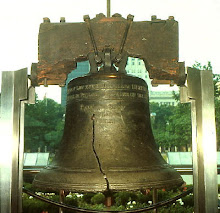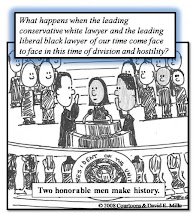
WASHINGTON -- The Supreme Court ruled that police need a warrant to search the vehicle of someone they have arrested if the person is locked up in a patrol cruiser and poses no safety threat to officers.
The court's 5-4 decision puts new limits on the ability of police to search a vehicle immediately after the arrest of a suspect.
Justice John Paul Stevens said in the majority opinion that warrantless searches still may be conducted if a car's passenger compartment is within reach of a suspect who has been removed from the vehicle or there is reason to believe evidence of a crime will be found.
"When these justifications are absent, a search of an arrestee's vehicle will be unreasonable unless police obtain a warrant," Mr. Stevens said.
Justice Samuel Alito, in dissent, complained that the decision upsets police practice that has developed since the court first authorized warrantless searches immediately following an arrest.
"There are cases in which it is unclear whether an arrestee could retrieve a weapon or evidence," Mr. Alito said.
Even more confusing, he said, is asking police to determine whether the vehicle contains evidence of a crime. "What this rule permits in a variety of situations is entirely unclear," Mr. Alito said.
The decision backs an Arizona high-court ruling in favor of Rodney Joseph Gant, who was handcuffed, seated in the back of a patrol car and under police supervision when Tucson, Ariz., police officers searched his car. They found cocaine and drug paraphernalia.
The trial court said the evidence could be used against Mr. Gant, but Arizona appeals courts overturned the convictions because the officers already had secured the scene and thus faced no threat to their safety or concern about evidence being preserved.
The state and the Bush administration complained that ruling would impose a "dangerous and unworkable test" that would complicate the daily lives of law-enforcement officers.
The justices divided in an unusual fashion. Justices Ruth Bader Ginsburg, Antonin Scalia, David Souter and Clarence Thomas joined the majority opinion. Chief Justice John Roberts and Justices Stephen Breyer and Anthony Kennedy were in dissent along with Mr. Alito.
Thanks to John Howes for the 411 on this matter. It seems to protect the rights of defendants from extended searches, but will likely cause consternation for law enforcement officers in its application, which may lead to a series of conflicting rulings. So what else is new?
































No comments:
Post a Comment